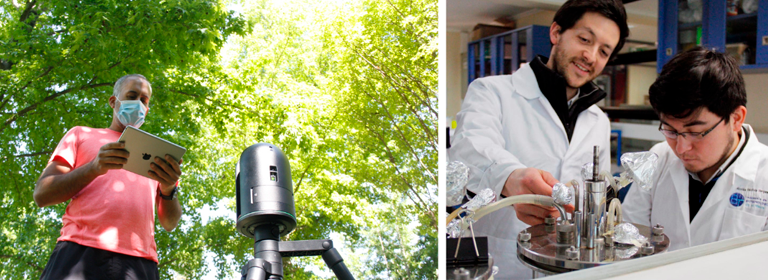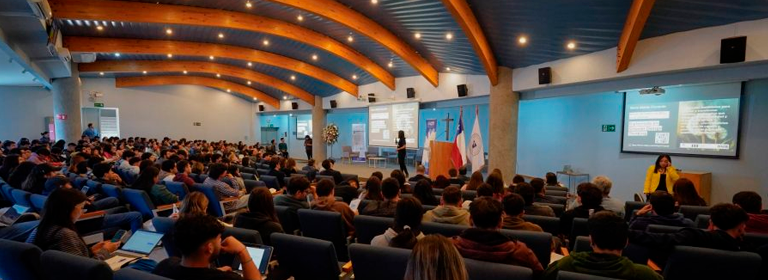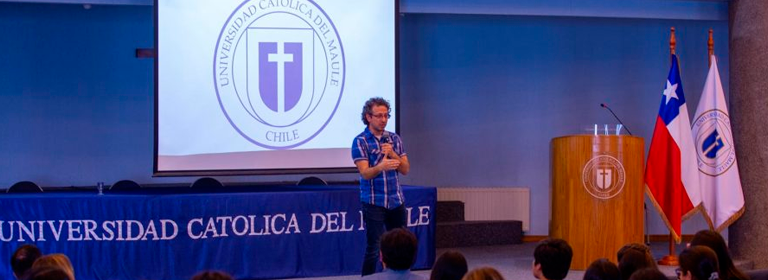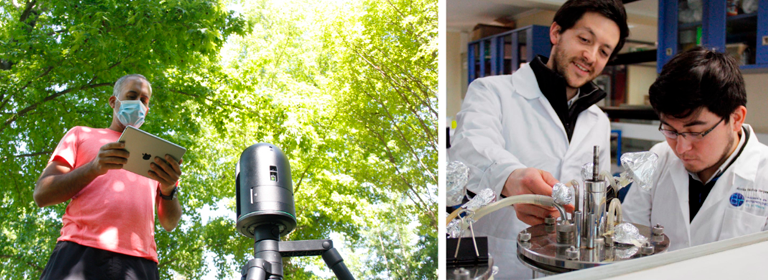The projects aim to generate knowledge applicable to the productive sectors of Maule, including an initiative that would save the equivalent of all the water consumed in a year by the inhabitants of Talca.

The Innovation Fund for Competitiveness (FIC by its acronym in Spanish) of the Gobierno Regional del Maule (Regional Government of Maule) will finance four UCM projects. The initiatives, which total more than 850 million Chilean pesos, aim at efficient irrigation, sustainable packaging, cancer detection, and enology improvement.
«For us it is extremely relevant to have been awarded these four FICs, since they respond to the areas and lines that we have developed for a long time and that are recognized in the region,» said María Teresa Muñoz, Vice-Rector for Research and Postgraduate Studies at Universidad Católica del Maule.
“We are very happy -she added-. I congratulate our researchers who make up the teams and who have allowed us as an institution to continue leading in development issues, which will benefit the population and the most vulnerable communities”, she added.
The projects that will be supported by the GORE are entitled «Remote Sensors and Artificial Intelligence for efficient irrigation in cherry trees», «Biopacking based on organic waste aerogel», «Biomarker to detect gastric cancer», and «Innovation in a sustainable and intelligent wine/oenological laboratory to improve the wine production process in the Maule Region».
The Director of Innovation, Development, and Technology Transfer, Fabiola Loyola, highlighted the support of her division in the application phase.
She pointed out “One of the functions that we incorporated into the Innovation Platform, as part of the unit, was the support from our technology managers, primarily to the critical points of the formulation (…). We hope to continue with this function, which is very important for the university, with all the applied research projects. In order to promote the awarding of this type of projects and thus strengthen innovation and possible technology transfer to the environment”, she pointed out.
 A year of water
A year of water
One of the initiatives among the fifteen projects to be financed by the fund seeks to generate an irrigation model for cherry trees, one of the main agricultural products of the Region.
“It is an à la carte irrigation that we want to give cherry trees with a technology that can be extended to other crops. These are sensors installed in some trees that will measure variables such as sap flow and temperature and that will tell us what state the tree is in. If the tree is stressed or showing lower yield, this is possibly related to irrigation (…). A tree is well when it has adequate watering”, explained the author of the initiative, Antonio Cabrera, Ph.D. in Plant Production Sciences.
The Italian-made sensor will calculate variables through a needle that will be inserted into the tree trunk and send the information to a server via text messages.
“The device is a part of the project. We also want to apply deficit irrigation techniques, which do not affect the quality and production of the fruit. We want to see what exact amount of water to apply so that the quality of the fruit is the same and save 20 or 30 percent of the irrigation water in cherry trees. In one year, considering all the cherry orchards, the water consumed by all of Talca can be saved,” said the also member of the Center for Research and Advanced Studies of Maule (CIEAM, in Spanish), which belongs to the campus.
He pointed out “The savings, if only adopted in 50 percent of the cherry crop in the Region, would be the water consumed in a year by 440,000 people. This, considering that a cherry tree consumes around nine thousand cubic meters per hectare and per year”.
Researchers Rodrigo Andler, Matthias Piesche, and Juan López lead the other UCM initiatives that were elected.













